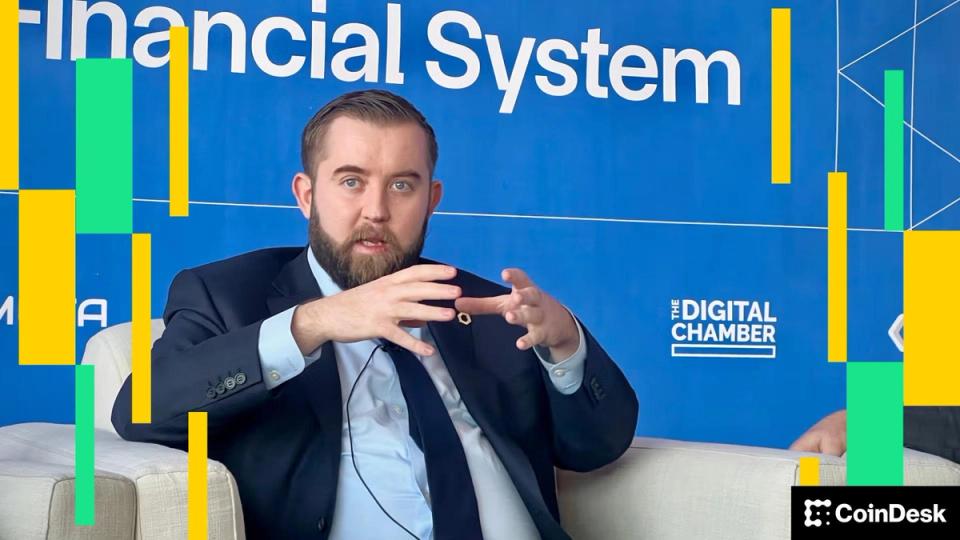“This is an important milestone in the ETF industry,” said Todd Rosenbluth, head of research at VettaFI. “For a generation of investors who have adopted ETFs as their best investment vehicle, this opens the door for them to gain exposure to this burgeoning asset class.”
In other words, these funds are a big deal. Here’s why, and what you need to know about them.
If you thought you saw a bitcoin ETF before Thursday’s announcement, you’re right — sort of. The previous generation of ETFs were designed to track the price of bitcoin by holding bitcoin derivatives. In general, the managers of these ETFs were constantly buying and selling bitcoin futures to try to replicate movements in bitcoin’s value.
This imperfect process often resulted in investment returns that did not accurately track fluctuations in bitcoin’s price.
“It was a broken product that never really worked,” says Stephane Ouellette, founder and CEO of FRNT Financial. “Buying bitcoin products in most retail accounts has been very difficult.”
The new list of ETFs clears up that problem. So-called spot ETFs track the price of bitcoin by actually owning bitcoin. “It might be a cleaner way to get exposure to the asset,” says Rosenbluth.
Unlike many popular ETFs, which track the performance of a diverse range of investments, the new bitcoin funds track one thing: the price of bitcoin. Which begs the question: Why not just own bitcoin?
The answer, for many retail investors, will be convenience. Bitcoin ETFs can be purchased directly through your brokerage account and can live on your portfolio dashboard right next to all your other investments.
“The investor who’s likely to find it attractive is the one who’s already bought other ETFs, whether they’re tied to the S&P 500 or emerging markets or bonds or what have you,” Rosenbluth says. “It works just like any other ETF of yours. You buy and sell it on the market during trading hours, you get exposure to the underlying investment and you can sell whatever it is you want in a tax efficient way.”
One downside to owning an ETF rather than owning bitcoin directly in a separate account is that an ETF charges an annual management fee. Expense ratios on the 11 new funds range from 0.2% of your assets in the fund to 1.5%, although several firms are temporarily waiving or lowering their fees to get clients in the door.
In particular, some popular crypto exchanges, such as Coinbase, charge investor fees for trading bitcoin and other digital currencies.
The first wave of ETFs tracking the price of bitcoin is just the beginning, says Ouellette.
“If this race to cut fees continues, these ETFs are going to be loss-leading products,” he says. “Within the next year, [major fund companies] looking to build out a very broad range of crypto products.”
These may include funds that mix a bitcoin holding with a portfolio of other assets, or that include trading strategies that use derivatives to bet on some areas of the market while betting against others.
For now, if you’re interested in adding bitcoin to your portfolio in a way that matches your risk tolerance, adding one ETF to your portfolio over another will come down to personal preference. Rosenbluth points out that you might get the best deal cost-wise with one of the funds that waive fees, but feel comfortable investing with a name you trust.
“There are benefits to fame,” he says. “If you’ve invested in ETFs before, there’s a good chance you’ve heard of some of these firms among the handful that have launched products.”
As new, more complicated funds emerge, you’ll need to do a little more digging to determine if it’s a product that’s right for your goals.
“There are going to be new managers who come forward and convince people that they are going to do a good job, and they can do a lot of good,” says Ouellette. “But when you try to look at track record, you really want to see that they’ve performed throughout a variety of different market environments. Market dynamics in this space change drastically from trading window to trading window.”
DON’T MISS: Do you want to be smarter and more successful with your money, work and life? Sign up for our new newsletter!
Do you want to leave your dream job in 2024? Take CNBC’s new online course How to Ace Your Job Interview to learn what hiring managers are really looking for, body language techniques, what to say and not to say, and the best way to talk about pay. Get started today and save 50% with discount code EARLYBIRD.
WATCH: 11 newly approved bitcoin ETFs begin trading today – but experts say to ‘approach with caution’
Disclaimer for Uncirculars, with a Touch of Personality:
While we love diving into the exciting world of crypto here at Uncirculars, remember that this post, and all our content, is purely for your information and exploration. Think of it as your crypto compass, pointing you in the right direction to do your own research and make informed decisions.
No legal, tax, investment, or financial advice should be inferred from these pixels. We’re not fortune tellers or stockbrokers, just passionate crypto enthusiasts sharing our knowledge.
And just like that rollercoaster ride in your favorite DeFi protocol, past performance isn’t a guarantee of future thrills. The value of crypto assets can be as unpredictable as a moon landing, so buckle up and do your due diligence before taking the plunge.
Ultimately, any crypto adventure you embark on is yours alone. We’re just happy to be your crypto companion, cheering you on from the sidelines (and maybe sharing some snacks along the way). So research, explore, and remember, with a little knowledge and a lot of curiosity, you can navigate the crypto cosmos like a pro!
UnCirculars – Cutting through the noise, delivering unbiased crypto news







